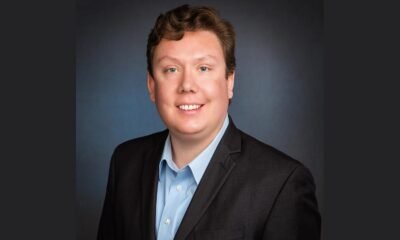Business
Crisis Pregnancy Centers Surge in Arizona Amid Abortion Access Showdown

In a striking demonstration of the intersection between religion and politics, Dream City Church in Phoenix hosted “Freedom Night in America” on a September evening in 2022. As a contemporary music band performed under vivid red and blue lights, congregants engaged enthusiastically with the worship experience.
This event marked a significant partnership announcement between Turning Point USA, a prominent conservative youth activist organization, and Choices Pregnancy Center, one of Arizona’s several crisis pregnancy centers (CPCs). These centers provide limited services, including free pregnancy tests and ultrasounds, but they often lack comprehensive reproductive health care being unlicensed medical facilities.
Turning Point USA founder Charlie Kirk received an enthusiastic welcome from a young audience as he took the stage. He emphasized the need for alternatives to abortion clinics, urging that “it is on us as Christians and believers to make sure that every single woman who is pregnant in Arizona knows that there are options available that are not Planned Parenthood.”
In light of the overturned Roe v. Wade decision, CPCs have gained traction, portraying themselves as supportive alternatives for women contemplating abortion. However, this characterization has faced scrutiny as concerns mount about misleading practices. Arizona’s Attorney General Kris Mayes has warned that these centers can obscure true reproductive options, describing CPCs as “an obstacle hiding in plain sight” for women seeking abortion care.
Mayes highlighted that many CPCs mislead clients by presenting themselves as medical facilities while primarily aiming to dissuade women from seeking abortions. This sentiment was also echoed by a coalition of attorneys general from various states, including California, underscoring a broader national concern regarding the proliferation of CPCs in conservative jurisdictions.
Arizona’s legal landscape surrounding abortion has shifted considerably, primarily post-Dobbs decision, which enacted a restrictive 15-week abortion ban. With funding for CPCs increasing dramatically since the ruling, state aid has risen to millions sponsored by influential groups advocating for such programs.
The implications of this funding are manifold, as critics argue it directs vital resources towards facilities that may not genuinely support women’s health. Equity Forward’s analysis reveals that states have allocated nearly $500 million to CPCs since the Supreme Court ruling. In Arizona, the Family Health Pilot Program recently approved $3 million funded for CPCs, raising questions about priorities in reproductive health services.
Despite CPCs’ claims of providing invaluable support, the limitations of their services compared to licensed medical providers are stark. Comprehensive prenatal and postpartum care is crucial, particularly amidst rising maternal mortality rates—especially among marginalized communities. Research indicates that while CPCs might offer limited resources, they cannot replicate the full spectrum of medical care available at licensed clinics.
Public funding for CPCs remains a contentious issue, with figures showing significant federal backing as well. Critics argue that such funds should ideally support community-based organizations genuinely invested in women’s health rather than agencies prioritizing anti-abortion agendas. Legislative attempts to regulate CPCs have faced significant obstacles, indicating the depth of the political divide on this issue.
The narrative around CPCs is complex, attracting varied reactions from voters and officials alike. Upcoming ballot measures, such as the Arizona Abortion Access Act, signal that popular sentiment may be shifting as Arizonans seek to enshrine reproductive rights in the state constitution.
With notable criticism directed at CPC functioning and funding practices, calls for transparency and accountability grow louder. Attorney General Mayes has urged women to stay informed and report any deceptive practices encountered at these facilities, emphasizing the need for vigilance in navigating available health options.
This article first appeared in the Arizona Center for Investigative Reporting.

















